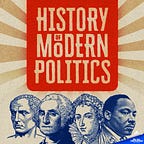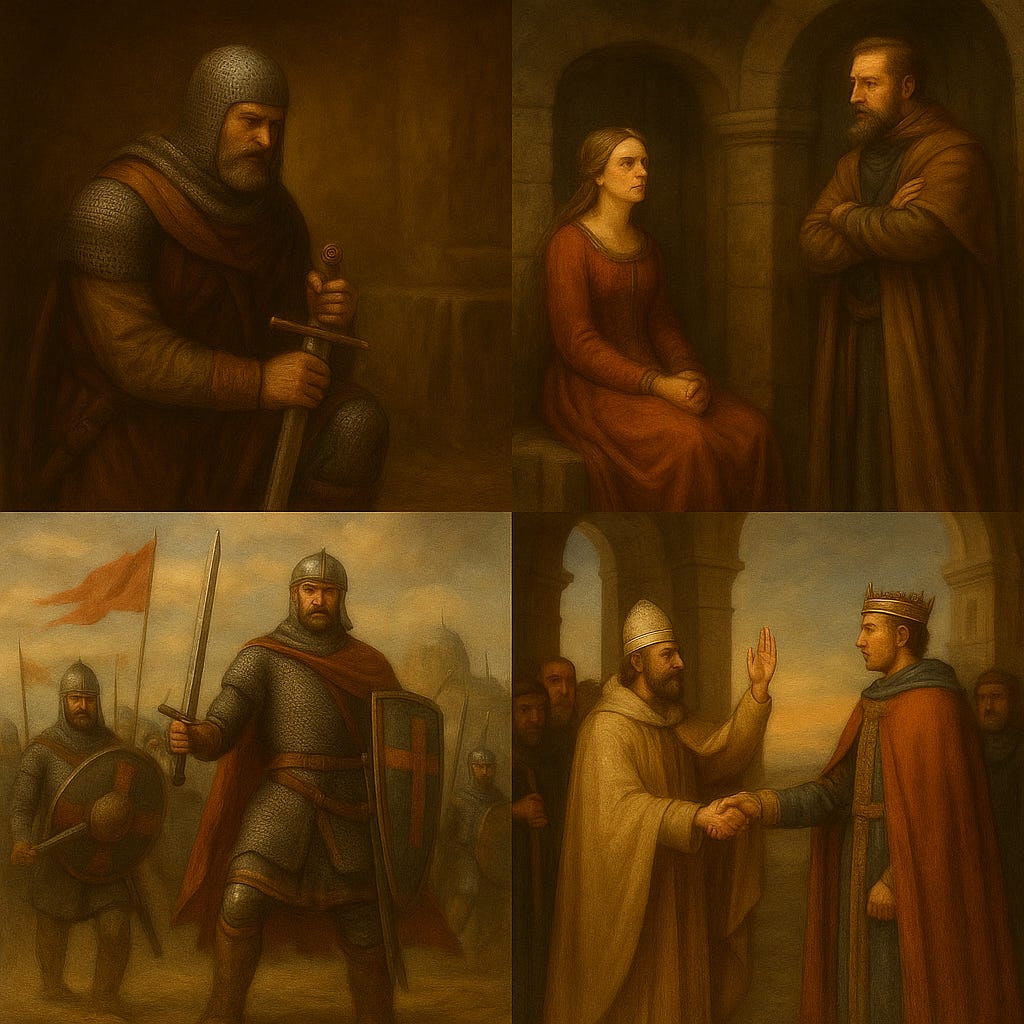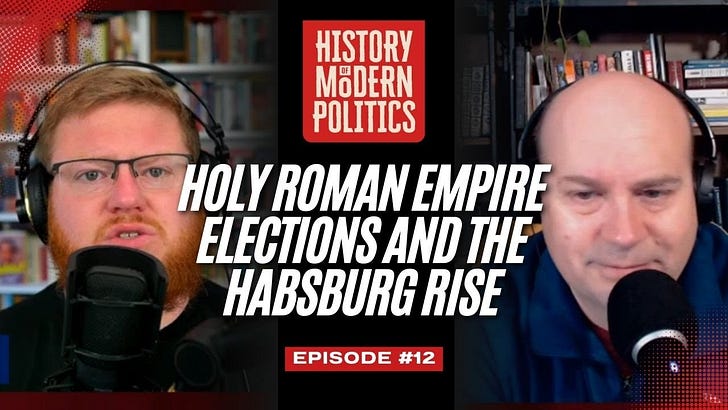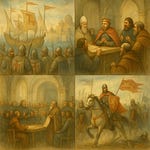The episode opens not in a throne room but in a library. In the 19th century, a French scholar rediscovered The History of William Marshal, a 12th-century poetic biography of a knight who served five English kings. Through Marshal’s life, we glimpse the age of Henry II, Richard the Lionheart, and King John—an age when knighthood, chivalry, and monarchy were being rebuilt from the wreckage of The Anarchy.
Henry II inherited England and a patchwork of territories that stretched from Scotland to the Pyrenees—what historians now call the Angevin Empire. His first task was to impose order after civil war. Royal justices toured the shires; sheriffs were reined in; and the common law began to take form—royal courts enforcing uniform rules in place of feudal custom. Yet Henry’s ambitions ran beyond administration. He sought to bind the Church as firmly as his barons, naming his friend Thomas Becket Archbishop of Canterbury in 1162. Their friendship collapsed over the question of royal control of the clergy. Becket’s murder inside Canterbury Cathedral shocked Christendom and branded Henry’s reign with guilt and reform.
Abroad, Henry fought constantly—against the French crown, against rebellious nobles, and eventually against his own sons. Eleanor of Aquitaine, once his ally, became his rival, backing the sons’ uprisings. The Angevin domains survived Henry’s death only to fracture under Richard I, whose glory in the Third Crusade bankrupted the realm, and under John, whose failures in France exposed the limits of royal power.
By 1215, John’s losses and heavy taxation brought open revolt. The barons forced him to seal the Magna Carta, a document that put restraint on the king; even a king must keep his word. Though annulled within months, it endured as precedent: that law stands above the ruler.
My takeaway: Henry II built the machinery of English law to strengthen kingship; his heirs proved that the same machinery could limit it. The empire he forged unraveled, but the idea he left behind—that justice must answer to more than might—became England’s most lasting conquest.











